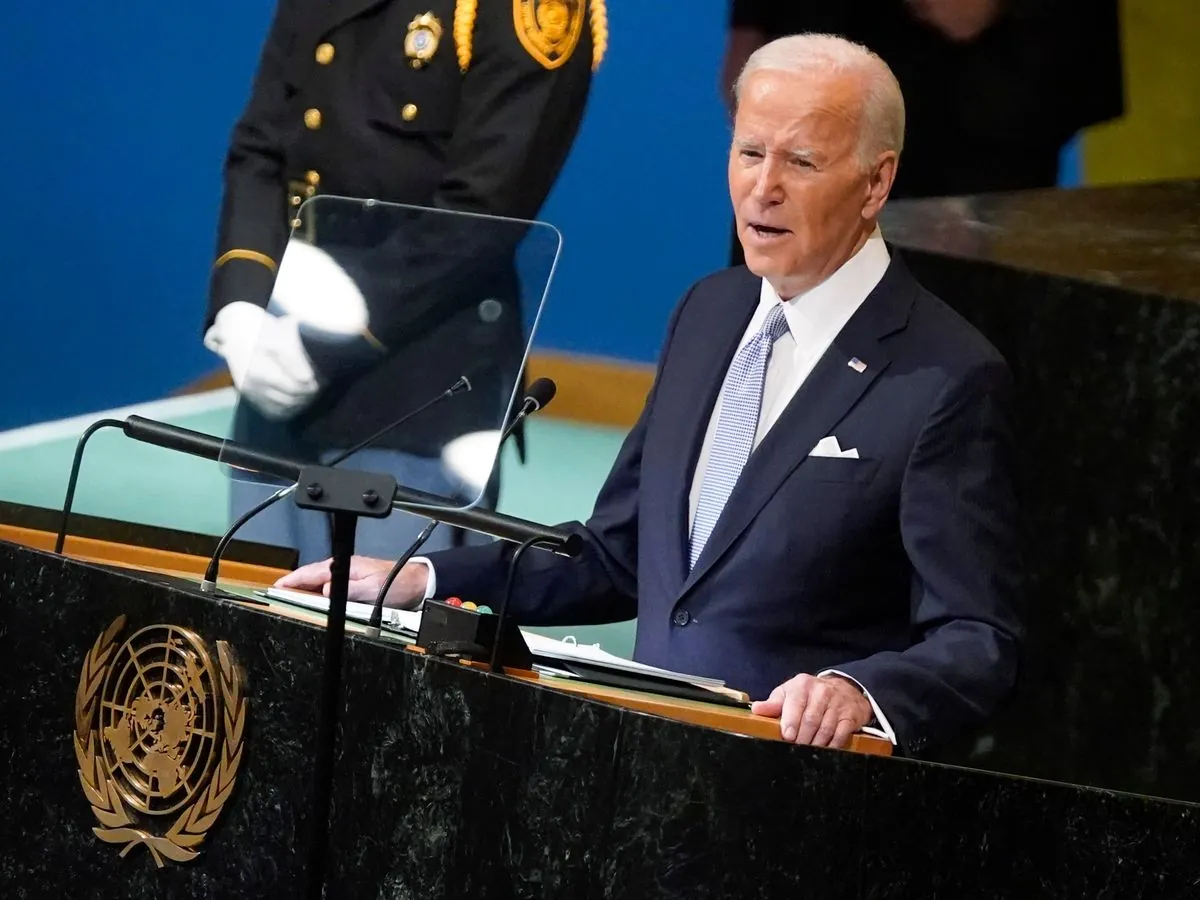Biden's Final UN Address: Navigating Global Conflicts and Legacy Challenges
President Biden prepares for his last UN General Assembly speech, addressing Middle East tensions and Ukraine support. His foreign policy legacy hangs in the balance amid escalating conflicts.

As President Joe Biden prepares to deliver his final address to the United Nations General Assembly, established in 1945, he faces a world grappling with escalating conflicts and diplomatic challenges. The speech, scheduled for September 24, 2024, comes at a critical juncture in global affairs, with tensions rising in the Middle East and the ongoing war in Ukraine entering its 31st month.
The Middle East situation remains a focal point of concern. The conflict between Israel and Hamas, which began on October 7, 2023, has entered its second year, resulting in significant casualties. Simultaneously, tensions between Israel and Hezbollah, founded in 1985, are escalating along the Lebanon border, raising fears of a potential multi-front war. This situation stands in stark contrast to the optimism Biden expressed just a year ago about a "sustainable, integrated Middle East."

The President is expected to address the need for de-escalation in the region. The White House has emphasized diplomatic efforts to prevent further escalation between Israel and Lebanon. This comes as the Pentagon announces the deployment of additional troops to the Middle East, supplementing the approximately 40,000 already stationed there.
Biden's foreign policy legacy is intricately tied to these conflicts. His administration successfully extracted the U.S. from "forever wars" in Afghanistan and Iraq, with the withdrawal from Afghanistan in August 2021 marking the end of America's longest war. However, the ongoing situations in Ukraine and the Middle East present new challenges.
The President is also likely to highlight continued Western support for Ukraine in its defense against Russian aggression. The United States, a founding member of NATO since 1949, has played a crucial role in galvanizing international support for Kyiv. However, Biden faces pressure from Ukrainian President Volodymyr Zelenskyy to loosen restrictions on long-range missiles, a decision with significant strategic implications.
"We need these weapons to defend our country and liberate our temporarily occupied territories."
The speech offers Biden an opportunity to make a case for sustained support for Ukraine, particularly in light of potential changes in U.S. leadership following the upcoming election. The President's ability to maintain this support in the face of rising skepticism from some quarters will be crucial.
Biden's address is expected to touch on other global issues as well, including the ongoing civil war in Sudan and the broader implications of the Arab Spring, which began in 2010 and reshaped much of the Middle East and North Africa. He may also address the status of the Iran nuclear deal (JCPOA), from which the U.S. withdrew in 2018, and its impact on regional stability.
As the President prepares to meet with Zelenskyy in Washington following his UN address, the world watches to see how Biden will navigate these complex global challenges and shape his foreign policy legacy in the final months of his term.


































